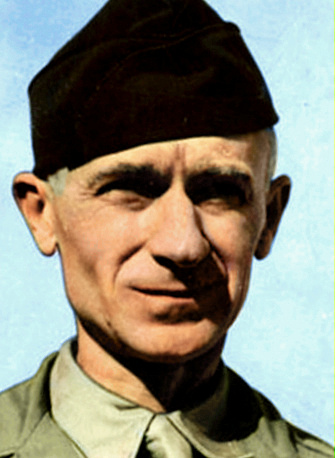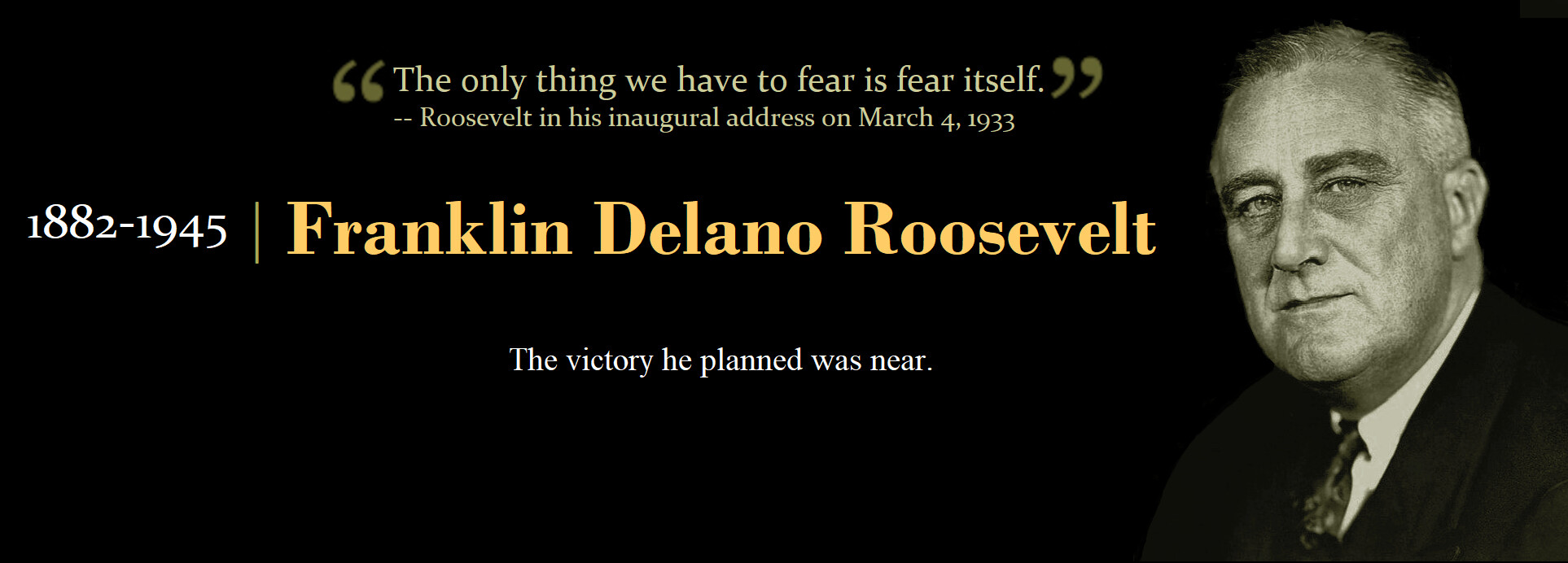
Roving Reporter
By Ernie Pyle
OKINAWA (via Navy radio) – Our first night on Okinawa was uncanny and full of old familiar sounds – the exciting, sad, weary little sounds of war.
It had been six months since I’d slept on the ground, or heard a rifle shot. With the Marines it was about the same.
I was tagging along with a headquarters company of a regiment. We were on a pretty, grassy slope out in the country. The front lines were about a thousand yards ahead. Other troops were bivouacked all around us.
There were still a few snipers hiding around. An officer was brought in just before dark, shot through the arm. So, we were on our toes.
Just at dusk, three planes flew slowly overhead in the direction of the beach. We paid no attention, for we thought they were ours. But they weren’t.
In a moment all hell cut loose from the beach. Our entire fleet and the guns ashore started throwing stuff into the sky. I’ve never seen a thicker batch of ack-ack.
As one of the Marines said, there were more bullets than there was sky. Those Jap pilots must have thought the world was coming to an end to fly into a lead storm like that only 10 hours after we had landed on Okinawa. All three were shot down.
No country sounds at all
As deep darkness came on, we got into our foxholes and settled down for the night. The countryside became as silent as a graveyard – silent, that is, between shots. The only sounds were war sounds. There were no country sounds at all. The sky was a riot of stars.
Capt. Tom Brown was in the foxhole next to me. As we lay there on our backs, looking up into the starry sky, he said:
“There’s the Big Dipper. That’s the first time I’ve seen that since I’ve been in the Pacific.” For, you see, Marines of this division have done all their fighting under the Southern Cross, where our Big Dipper doesn’t show.
As full darkness came, flares began lighting the country ahead of us over the front lines. They were shot in shells from our battleships, timed to burst above our lines, and float down on parachutes. This was to keep the country lighted up so we could see the Japs if they tried to infiltrate, which is one of their favorite tricks.
The flares were shot up several per minute from dusk until the moon came out full. It was very bright after that and the flares were not needed.
But all night long, two or three ships kept up a slow shelling of the far hills where the Japs were supposed to be. It wasn’t a bombardment; just two or three shells per minute. They passed right over us and I found that passing shells have the same ghostly “window shade rustle” on this side of the world as on the other.
My foxhole was only about 20 feet from where two field telephones and two field radios were lying on the ground. All night, officers sat on the ground at these four pieces of communications and directed our troops.
Conversation startlingly familiar
As I lay there listening in the dark, the conversation was startlingly familiar – the words and the thoughts and the actions exactly as I’d known them for so long in the infantry.
All night I could hear these low voices over the phones – voices in the darkness, voices of men running the war at the front.
Not long after dark the rifle shots started. There would be a little flurry far ahead, maybe a dozen shots. Then silence for many minutes.
Then there would be another flurry, way to the left. Then silence. Then the blurt of a machine gun closer, and a few scattered single shots sort of framing it. Then a long silence. Spooky.
All night it went like that. Flares in the sky ahead, the crack of big guns behind us, then of passing shells, a few dark figures coming and going in the night, muted voices at the telephones, the rifle shots, the mosquitoes, the stars, the feel of the damp night air under the wide sky – back again at the kind of life I had known so long.
The old familiar pattern, unchanged by distance or time from war on the other side of the world. A pattern so imbedded in my soul that, coming back into it again, it seemed to me as I lay there that I’d never known anything else in my life. And there are millions of us.

